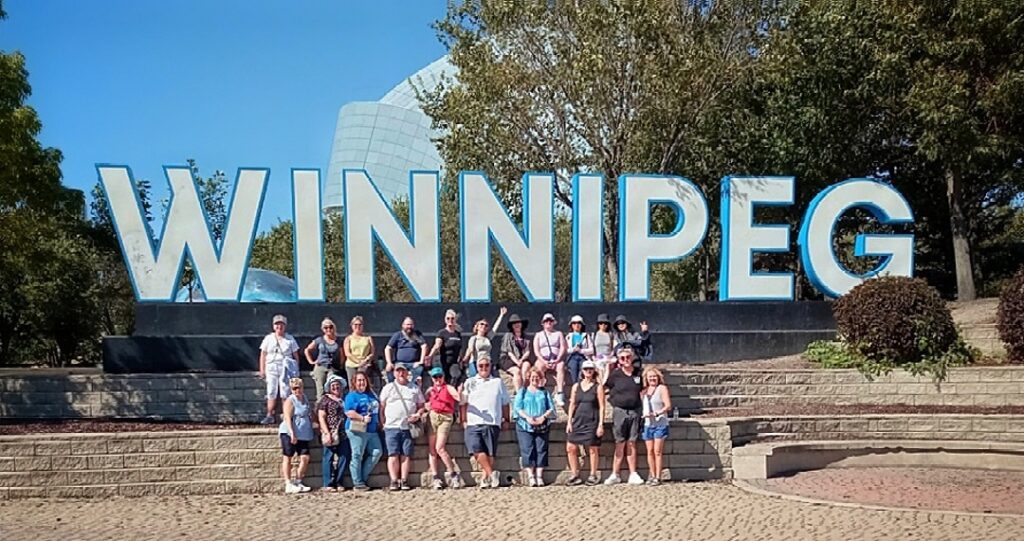“A jack of all trades, a master of none” is an adage we’ve all heard at one time or another. David Epstein challenges this notion.
Let’s be real – if you’re reading this, you’re probably already someone who appreciates learning and professional growth.
So why should everyone read “Range” by David Epstein? Well, “Range” makes a compelling case that the key to thriving in today’s unpredictable world isn’t just digging deeper into one specialty; it’s about broadening your horizons.
Epstein shows that in fields from sports to science, people who have a wider range of experiences and skills are often the ones who innovate and adapt best.
Now, this message might feel a bit counterintuitive. After all, aren’t we always hearing that success comes from intense focus and specialization? But Epstein challenges that mindset, arguing that when we’re too specialized, we risk falling into something he calls “cognitive entrenchment.”
This is the tricky mix of becoming overconfident in what we know while losing our ability to think creatively. It’s something I think anyone – especially professionals and small business owners – can easily fall into without even realizing it.
Reading “Range” is like a breath of fresh air if you’re looking for permission (and maybe even a little push) to explore outside your comfort zone. Epstein doesn’t just suggest this as a “nice-to-have”; he presents it as essential to success in a complex world.
Whether you’re already in a specialized role or running a business that demands you wear many hats, “Range” will challenge you to think differently and remind you that a little variety in your learning can go a long way.
Let’s explore more in depth.
Why Everyone Should Read “Range” by David Epstein
So, what exactly are the benefits of reading “Range”? Epstein doesn’t just tell us that having a wide range of skills is good; he dives into why it actually gives us an edge. He’s basically saying that the world we live in demands more than just one trick up our sleeve.
The people who thrive in their careers – and in life – are often the ones who’ve dipped their toes in different waters and aren’t afraid to keep learning, even if that means starting from scratch.
For professionals, especially in fields like accounting or law where there are plenty of rules and routines, “Range” is a wake-up call to stay curious. It’s easy to get into a rhythm, or a rut, where we rely on the same methods and tools day after day.
But Epstein warns that this kind of narrow focus can make us rigid and less adaptable. He argues that in the long run, variety and experimentation actually lead to better decision-making and more creative solutions.
And for small business owners? Well, you’re probably already used to juggling different roles – sales, marketing, customer service, you name it.
“Range” validates that multi-faceted approach and goes even further, suggesting that all of these seemingly disconnected skills are exactly what can help you pivot, adapt, and succeed, even in unpredictable times.
In Epstein’s world, every new skill or experience you pick up is a building block that adds to your problem-solving toolkit. It’s like adding more arrows to your quiver – you never know which one you’ll need, but you’ll be glad to have options when the time comes.

Lessons from “Range” by David Epstein for Professionals
One of the biggest takeaways from “Range” is that growth doesn’t always look like a straight line. Epstein argues that the most successful professionals aren’t necessarily the ones who’ve followed a clear, step-by-step career path.
Instead, they’re often the ones who took a winding road, sampling different experiences, and making a few detours along the way. It’s a refreshing reminder that there’s no “one right way” to build a successful career or business.
For those of us in professional careers, where a structured, methodical approach is often valued, this is a big shift in perspective. Epstein suggests that rigidly sticking to one way of doing things – or one way of thinking – can actually limit our effectiveness.
He introduces the concept of “cognitive entrenchment,” where over time, we can become so confident in our methods that we stop seeing alternative solutions, even if they’re staring us in the face.
If you’ve ever felt like you’re so deep in the details that you’re missing the bigger picture, you’re not alone – and “Range” might be exactly what you need to shake things up.
For professionals in any field, Epstein’s advice is clear: make space for curiosity. Try something new, step outside your comfort zone, and allow yourself to learn like a beginner every now and then.
He even suggests that “sampling” different experiences and fields – whether it’s through hobbies, new projects, or skill-building – can make you better equipped to tackle complex challenges down the road. In other words, don’t just dig one deep trench; give yourself permission to explore.
The book encourages us to stay open to new ways of thinking and to remember that sometimes the best solutions come from unexpected places.
So if you’re a professional feeling a bit boxed in, “Range” is a call to let yourself wander a little. After all, you never know what fresh ideas might come from trying something new.
And I highly recommend you combine this book with Implementing Value Pricing by Ron Baker.These two books inject a breath of fresh air into any professional practice.
Why Generalists Succeed in Business and Careers
Now, here’s a surprising twist: “Range” argues that generalists – people who have a variety of skills and interests – often end up thriving in business and careers precisely because they haven’t specialized too early or too narrowly.
Epstein dives into examples of how people with broad experiences bring fresh, innovative solutions to complex problems, while those who’ve only ever worked within a single niche sometimes find themselves stuck.
For small business owners, this idea feels especially relevant. Running a business practically requires you to be a generalist by default. One day you’re working on marketing, the next you’re dealing with customer issues, and maybe after that, you’re figuring out some tech problem.
Epstein would argue that this range of experience is actually a strength, not a distraction. It’s what helps you pivot, adapt, and respond to challenges in creative ways that a more rigid specialist might struggle with.
And for those of us in structured professions like accounting? Well, it’s easy to fall into the habit of relying solely on our expertise. But Epstein makes the case that stepping outside of that comfort zone – whether it’s through learning new skills, exploring unfamiliar industries, or even picking up a hobby that’s totally unrelated to work – can actually make us better at our jobs.
By bringing in outside perspectives and connecting the dots across fields, generalists have an edge in spotting solutions that others might overlook.
In a world that often values depth over breadth, “Range” is a reminder that a well-rounded skill set can be a real asset.
Whether you’re a business owner juggling roles or a professional looking to expand your toolkit, this book is a powerful nudge to stay curious, keep learning, and embrace the “jack of all trades” mindset.

How “Range” by David Epstein Challenges Specialization
We’ve all heard it: “Find your niche,” “Become an expert,” “Focus, focus, focus.” But “Range” turns this advice on its head, suggesting that specialization can sometimes hold us back rather than push us forward.
Epstein explains that being too specialized can create blind spots, where we get so used to approaching problems in one way that we miss alternative (and often better) solutions. This is especially true in fields where change is constant – sound familiar?
For accountants, bookkeepers, and small business owners, Epstein’s insights hit home. It’s easy to get attached to familiar methods and the tools we know well. But “Range” warns that this kind of comfort can become a trap.
When we stick too closely to what we know, we risk developing “tunnel vision,” where we see every challenge through the same lens. Epstein points out that true creativity and problem-solving often come from looking outside our usual area of expertise – from asking questions, exploring new tools, or even learning from other industries entirely.
Epstein also introduces the concept of “lateral thinking,” or approaching problems from new angles. This idea of stepping back and looking at the bigger picture can help us avoid getting “boxed in” by our own expertise.
It’s a call to mix things up, to allow ourselves – and our businesses – the freedom to experiment, fail, and try again. After all, some of the best ideas come from the least expected places, and “Range” makes a strong case that broadening our perspectives can be the key to unlocking them.
So if you’ve been laser-focused on your niche, “Range” might just inspire you to step out of your comfort zone. After all, a little bit of exploration and experimentation can go a long way toward helping us solve problems in fresh, innovative ways.
Reflections Inspired by “Range”
Reading “Range” by David Epstein left me reflecting on the importance of lifelong, wide-ranging learning and the courage it takes to stay curious. One of the strongest messages I took from the book is how crucial it is to keep an open mind and avoid becoming stagnant – especially in professions where the risk of over-specialization looms large.
It’s all too easy to settle into established rules and routines, but this book reminds me that if we stop learning broadly, we risk becoming mere gatekeepers of the status quo rather than resilient, adaptable professionals.
Epstein also inspired me to think about how we can create “kind” learning environments in our own lives and businesses – spaces where experimentation and growth are valued over perfection.
And it’s not just for us. It’s a mindset we can pass on to the next generation, allowing our kids to experience a sampling period, trying out different interests and talents without the pressure to specialize too soon.
The idea of free play as a part of learning also resonated. There’s value in just “playing” with ideas and interests without aiming for a polished result on the first try. After all, as the saying goes, “The first draft of everything is [well, a mess],” and that’s okay. Creativity thrives when we give ourselves room to experiment without judgment.
In the end, “Range” challenged me to rethink what it means to be effective and resilient, not just as a professional but as a lifelong learner. For those of us in specialized fields – or anyone feeling a bit too boxed in – it’s a nudge to keep exploring, stay humble, and remember that the path to real innovation and growth is rarely a straight line.
Putting Range into Practice: My Own Experiments in Growth
One of the most powerful messages in “Range” is the value of stepping outside your comfort zone, of trying new things even if they feel intimidating or uncomfortable at first. Over the past few years, I’ve been putting this idea into practice in ways that are a bit out of character for me – and, if I’m being honest, a bit scary. But maybe that’s the point.
Take mountain hiking, for example. I’ve pushed myself to hike in all kinds of weather, often despite feeling more than a little anxious about what I might encounter along the way. It’s been a reminder that pushing through fears is part of growing, and that the rewards of stepping into the unknown often far outweigh the comfort of sticking to familiar paths.
Another area where I’ve tested my range is in my community. Despite my own social anxieties, I’ve led events to bring people together, providing a space for others to connect and find a sense of community.
And while I can’t say the nerves have gone away, I’ve found that the joy of building connections and giving people an opportunity to socialize in a meaningful way makes it all worthwhile. My most recent experience in this has been putting together and leading two walking tours of Winnipeg for the Ignite Conference by CPB Canada.

Then there’s my time volunteering with refugee children near a war zone via Fundacja Ocalenie. This experience was challenging and heart-wrenching, but it was also deeply fulfilling. It reminded me of the resilience people can cultivate when they face their fears and try to make a difference, no matter how small.
And now, here I am, trying my hand at writing – a venture that’s new, humbling, and full of learning curves.
Each of these experiences has been a lesson in growth, resilience, and staying curious. For me, they echo the ideas Epstein shares in “Range” – the encouragement to keep expanding, to face fears, and to realize that our personal “range” is what enables us to adapt, connect, and find meaning in all the surprising places life takes us.
Conclusion
At the end of the day, “Range” by David Epstein isn’t just a book about how to get ahead; it’s a reminder that success doesn’t have to come from a narrow path.
For professionals, business owners, and really anyone trying to make their way in an ever-changing world, “Range” is a call to stay open to learning, to explore different interests, and to remember that the best ideas often come from outside our usual lane.
Epstein’s insights are refreshing, especially for those of us who may feel pressured to specialize or worry about not being “expert” enough. He shows that a wide-ranging skill set isn’t just an asset; it’s a strategy for resilience, creativity, and adaptability. And that is why everyone should read “Range” by David Epstein.
So, if you’re ready for a book that’ll challenge the way you think about learning, career growth, and even life, give “Range” a read.
And just follow your curiosity. It will lead you to fulfilling and unexpected places.
Consider it your permission slip to keep experimenting, to pick up that hobby you’ve been curious about, or to try something completely new.
Because, as Epstein so brilliantly shows, sometimes the road less specialized really does make all the difference.
